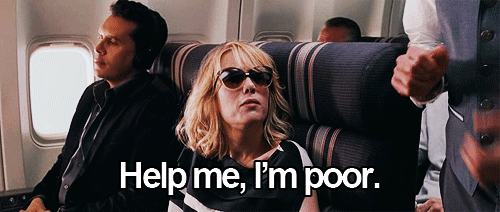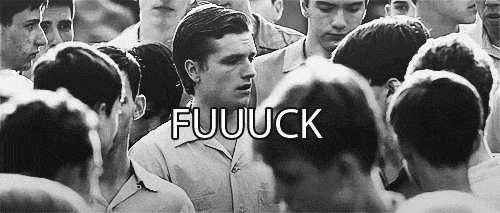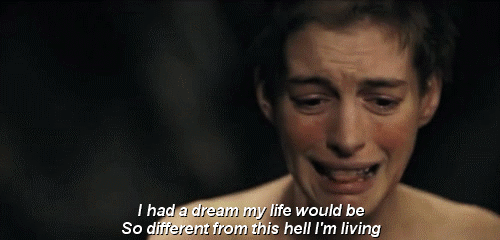Davis Cup Tickets go on sale this Thursday at 10am! I hope I can get my hands on some ![]() *might be stuck at work*
*might be stuck at work*
The post Davis Cup Tickets appeared first on 夢と愛の千夜一夜.

Davis Cup Tickets go on sale this Thursday at 10am! I hope I can get my hands on some ![]() *might be stuck at work*
*might be stuck at work*
The post Davis Cup Tickets appeared first on 夢と愛の千夜一夜.
Margaret Atwood came to UBC last month to give a talk titled Writing the Future. I don’t have too much I want to say about the talk right now, though I think it opens several interesting discussions. On a side note, I’ve yet to be much of a fan of Atwood’s writing style (as I recall, I didn’t much enjoy reading Alias Grace), but after hearing/watching several interviews with her, I discovered I very much like hearing her ideas. It’s amazing how she talks so monotone-esque, yet still manages to incorporate so much humour into her speech.
During part of her talk, at least as I recall it, Atwood went through many prevalent monsters in human history and tried to tie them to patterns society was seeing. For instance, werewolves were tied to the disease rabies which may have been rampant at some point during the werewolf fad. Both werewolves and rabies are tied to dogs, and both conditions lead the affected to want to bite other people. Also, vampires were tied to the aristocracy. (Perhaps) Both vampires and aristocrats lived in massive castles, and were prone to seduce common villagers. Perhaps, like vampires, the aristocrats also didn’t like sunlight due to the effects it had on the skin.
In any case, Atwood ended her talk by looking at the recent zombie craze. She suggested that the zombie apocalypse was a foreboding doom that society felt may be approaching, where zombies are people with no hope for the future. I think this is an interesting idea, and I see how the connections can be made.
Similarly, I can see the connection of zombies with apathy. I think it may also be possible to say that zombies represent people disconnected with reality. For instance, if you kick a zombie in the balls, it isn’t going to react–much like an apathetic society. Zombies don’t do much that is constructive, as they are usually concerned only with finding food (Hmmm…). Perhaps we should take warning of the direction society may be taking. It may turn out we’re heading towards a global population of people who are neither living nor dead, in heart, soul, body, and mind.
The post Margaret Atwood’s Writing the Future appeared first on 夢と愛の千夜一夜.
A lot of people think that the world is going to be ending next month. It’s a big thought for many people, and the anxiety grows as we get closer and closer to December.
But I’m not talking about December 21, 2012. I’m talking about final exams.
Instead of worrying about your final exams, why not prepare for them so you’re ready when they arrive? Take advantage of some of the free resources available to you on campus! (Such as free pizza to keep your mind working when you really want to sleep instead!)
Check out these Deal With December Now workshops and a workshop on Exam-Writing Strategies to gain some valuable skills to help you conquer your finals! Whether it’s your first time taking final exams at UBC, or the tenth season taking final exams, these workshops will help you polish up on your skills to prepare for final exams! And rumour on the street has it that there will be free pizza at these workshops ![]() Be sure to register soon, as seats are limited!
Be sure to register soon, as seats are limited!
The post The End of the World appeared first on 夢と愛の千夜一夜.
Every year since second year of university, this process always happens to me. Every. Freaking. Year. Let me explain through the magic of gifs:
1. Classes are so interesting! Way better than what I was learning last term.

2. So much free time. I should join a bajillion clubs on Clubs Day.

3. After joining a bajillion clubs and forking a lot of money to said clubs.

4. I’m so inspired to do more for other people and the community. I should apply for a position or two (or three…or four…).

5. Damn, so excited to be [insert position title] at [insert organization name] doing [insert job description]!

6. Repeat #5 2-4 times.

7. Proceed to spending all my free time doing #5 and #6.

8. Ehmegawd kill me now, I have no time.

9. Commit seppuku.

As time progresses, I’ve discovered this is what is called “Student Leader Problems.” Don’t believe me? There’s a Twitter account for that.
Now after 3 years of university, I’ve discovered what I am truly passionate about instead of doing random things because it peeks my interest just a tiny bit. Now I’ve broadened to organizations outside of UBC and they are even more exciting and incredible than the ones on campus.
So far my involvement schedule includes:
And things were going great…
Until I found out I had 9 midterms, 5 finals, and 3 papers.
At first I was like

Then I was like

And then this happened

And this is me now

That’s a total of 14 exams this semester. I’ve had midterms since late September and they last until mid-November, not to mention having 2 midterms and a paper on the same day and 2 finals on the same day. I’m just on the edge of my seat every day and my Google calendar looks a rainbow threw up on it.
The good thing about this, and this took me awhile to figure out because it felt like hell at the beginning, is that I’ve learned that I don’t procrastinate as much. Truth be told, I don’t have time to procrastinate. It’s not that I’m super efficient now, but I’ve learned to manage my time better.
Here are some tips that I’ve been doing that have pretty pretty effective:
To everyone who’s having similar to problems or just time management in general, how do you manage it all? I’d love to hear how you are being awesome and how you deal with it. Please leave a comment below and share some ideas!
This blog post is inspired by #whatweshouldcallubc and if it not for the genius behind that blog, I would not be able to complete this post. I have no idea what ninja skills he/she has to find all these gifs. *slow applause*
Tickets for TEDxTerry talks 2012 are now on sale! (Here’s a direct link for ticket sales; $10 a ticket) For those who don’t know what TEDxTerry talks is, click here to check out my previous blog posts about the annual event. Or, from the Terry website:
Generation Y, Unmanned Aerial Vehicles, Canadian Music, the Enbridge pipeline, education, gender, land rights in Brazil, earthquakes, the digital era and…toilets. What do these things have in common? They are some of the topics that your peers are going to speak about in their own TEDx Terry Talk, on November 3rd in the Life Sciences Building at UBC.
These are UBC’s most fascinating and engaging students coming together for a day, giving the talk of their lives, sharing their ideas and discussing their vis
ions for UBC and the world. Don’t miss the opportunity to be there, with students, alumni, faculty, administration, and members of the general public watching this unfold during a one day, student-led conference.Tickets: http://tedxterrytalks2012.eventbrite.com/
Twitter: @terryubc — #TEDxTt
Additional information: http://www.terry.ubc.ca/tedxterrytalks/Never been to the TEDx Terry Talks? Listen to this special episode of our podcast featuring highlights from last year: http://www.terry.ubc.ca/2012/01/18/the-terry-project-podcast-6-the-2011-tedx-terry-talks-highlights/
This year, our speakers include (titles subject to revision):
Alumni
- Ryan Vandecasteyen: Social Capital & the No Tankers Movement
Graduate
- Alisha Hackinen: Crafting a New Kind of Land Manager through -Problem Based Learning
- Sam Eifling: Dying for land in Brazil
- Eric Brown: The “Trickle-Down” Effect: How A Toilet Can Save Your Life
Undergraduate
- Nick Thornton: Your boyfriend wants to be pretty
- Eunice Hi: Don’t Just Follow Your Passion – The Missing Link, A talk for Generation Y
- Rebekah Parker: Lessons from a 6.3: on Community Engagement and Resiliency
- Alexander Wuolle: Unmanned Aerial Vehicles
- Stefana Fratila: WEIRD ERA: Being sincere in an era of digital creation
- Joseph Glaser: The Canadian identity crisis
Be sure to get tickets before they sell out!
I know many of you are currently in the middle of studying for midterms. I also know that many of you who should be studying for midterms are instead stalking friends on Facebook, tweeting the latest gossip on Twitter, and reading blogs such as this. Ever wish you had the drive to just get down to studying? Perhaps technology, which so often distracts us in the first place, may have a solution. How about an application that will allow you to block those most distracting websites when you’re supposed to be studying? Hope this helps ![]() Happy studying!
Happy studying!
Mac users, check out SelfControl.
Windows and Linux users, check out SelfRestraint.
(Thanks to Study Successful for sharing!)
So, apparently, UBC’s Kappa Sigma chapter has been shut down. Apparently this is newsworthy for the Ubyssey. I personally never really understood what fraternities/sororities offered back to a university campus. Nor did I ever figure out why the fraternities/sororities were the only clubs on campus allowed to discriminate their membership (I’m not saying other clubs should be allowed to discriminate; I’m saying it’s bizarre that they are allowed to discriminate). And I never understood the “necessary” cloud of secrecy that seemed to always be shrouding the Greek system.
Anyone able to enlighten me?
Hack College recently attempted to start a discussion over whether lectures or discussions are a better model for effective education. Ironically, the discussion never really took off (similar to many discussions that take place in a classroom setting). However, I thought it would be an interesting conversation to have, so I am looking to your input.
Although I agree with the fact that lectures are not an effective way of educating students (lecturing is passive and often disengages students), I am not yet convinced (at least for university classrooms) that discussions are a better alternative. With class sizes often well above 100 students, often limited with only 1 instructor, I feel that a discussion doesn’t do much more than a lecture at engaging students (in fact, it would strike me as being very similar to the current lecture style where most students are hesitant to engage the professor in conversation, ask questions, or answer questions). The limitations of authoritative figures in the class seems, to me, to be a limiting factor in splitting the class into smaller discussions; I feel that discussions would rarely really take off without a figure to guide the discussion. In the case that discussions do take off, as they sometimes do, I fear that those discussions would likely quickly stray from the purpose of the conversation at hand. If there is a goal to spending that time together as a group, I feel that a lecture offers much more control over that as opposed to a discussion.
In pointing out these points, however, I’m simply playing the devil’s advocate. I do not feel there is a clear winner in the university ring between lectures and discussions. I personally find discussions to be more educational, but the lack of structure often makes the educational density sparse.
What do you guys think? Do you think that lectures or discussions are a better educational tool? Can you think of a better alternative?
The exam schedule is out! I’m unaffected completely this term ![]() Thanks to idm04 for informing me!
Thanks to idm04 for informing me!
It appears that UBC is changing its Major Entrance Scholarships from an application basis to one in which students are automatically considered. Although there is a shorter essay component, I believe the goal is to prevent students from being left out of consideration of the scholarship.
I’m personally pleased about this change. At least as I heard the story from other students at my high school, our counsellor wasn’t completely organized in his assisting with the Major Entrance Scholarships and some students were rushing to throw together an application the date it was due (as they were “selected” on a last minute basis). I never found out about these scholarships until I heard about this from those students. Hopefully this new system prevents such events from happening again…